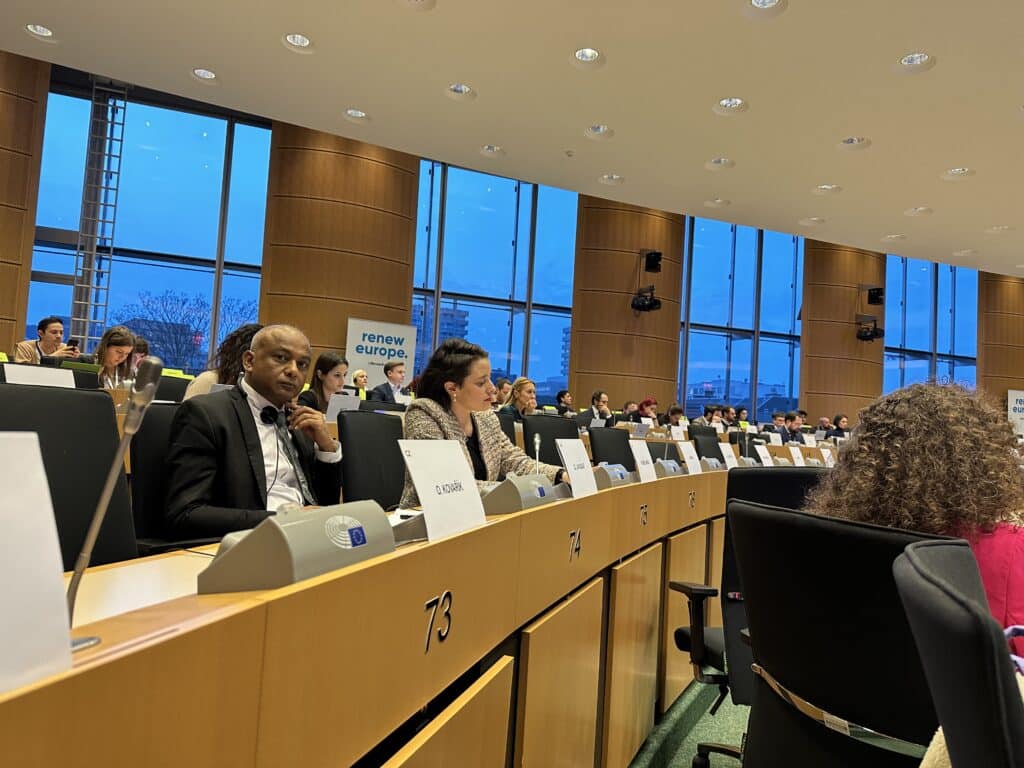Aid delivery to Gaza is lifesaving, and the EU must keep supporting it
As long as there are no viable alternatives to the United Nations Relief and Works Agency for Palestine Refugees in the Near East (UNRWA) in the delivery of humanitarian aid within Gaza, EU support is critical for the 5.7 million Palestinian civilians who depend on it. However, despite UNRWA’s announcement that they lack sufficient funding to operate at the same scale after February, the European Commission has not yet ensured payment to UNRWA.
No other organisation possesses such a substantial presence in Gaza as UNRWA, a point painfully reiterated by Secretary-General Guterres during a recent media briefing on the 8th of February 2024, sentiment echoed by the European Union.
The day-to-day reality in the Rafah area paints a bleak picture for its 1.5 million civilians. United Nations Office for the Coordination of Humanitarian Affairs (OCHA) data details the gravity of the situation, with 1.7 million people displaced, 2.2 million at an “imminent risk of famine,” over 60% of housing in Gaza damaged, and roughly 17,000 children unaccompanied or separated from their parents. Despite UNRWA’s unparalleled presence, the humanitarian aid reaching Gaza is insufficient, leaving those in need without adequate support.
Due to Israel’s allegations against 12 UNRWA staffers for potential involvement in the October 7th terrorist attack, some countries hastily dropped their financial support for UNRWA. This decision is considered untimely given the immense human cost this war has imposed on the Palestinian people and fails to consider the possible ramifications for the region’s stability.
While I’m relieved that the EU has not followed suit with those countries, the absence of a clear commitment from the EU Commission regarding support for UNRWA is concerning.
The Director of the UNRWA Representative Office for Europe, Marta Lorenzo, stressed the same point in last week’s Foreign Policy Committee (AFAT) meeting. Lorenzo emphasised that “unless suspension decisions are reversed, UNRWA will not be able to run its operations across Gaza and the region beyond the end of February.” While major donors like the US, Germany, and Britain have decided to withdraw support, despite no evidence of the allegations having been brought to light by the Israeli authorities, the Director-General for Neighbourhood and Enlargement Negotiations, Gert Jan Koopman, ensured Parliament that the EU continues its support, if UNRWA meets the Commission’s three requirements. However, due to uncertainties regarding the deadline, the Commission couldn’t provide a definitive assurance of EU support for UNRWA.
The three requirements outlined by the Commission are as follows:
- Conducting an audit of UNRWA by EU-appointed independent external experts.
- Strengthening UNRWA’s Department of Internal Investigations (DIOS).
- Prompt review of all UNRWA staff to confirm their non-participation in the attacks.
The question that remains is whether the EU Commission will decide to disburse funds to UNRWA, conditional on the agency meeting EU requirements. As for whether we are going to release these funds, that decision will ultimately depend on UNRWA’s compliance with the specified requirements and the assessment of the Commission based on the outcomes of the audit and other measures outlined.
Therefore, during this week’s Renew group meeting, where we had invited EU Commissioner for Crisis Management Janez Lenarčič to elaborate on the UNRWA situation, I took the opportunity to inquire about the potential political dimensions of defunding UNRWA and the future geopolitical landscape in the region if UNRWA can no longer continue its support. Additionally, I asked about the EU’s political strategy and measures to mitigate and navigate this potential crisis in UNRWA’s absence.

You can find the video footage of my question to Commissioner Lenarčič here.
Undoubtedly, the allegations against UNRWA are extremely serious and necessitate a thorough and thoughtful examination. Still, we disagree that action should be taken without the available facts
Given the delicate situation in Gaza and the increasing scrutiny surrounding UNRWA’s mission and operational strategies, it is quintessential for all nations, including those within the European Union, to exercise careful consideration in their decision-making processes.
With the support of 25 other MEPs in the European Parliament, these discussions have prompted me to submit written priority questions to the Commissioner in charge of the Union’s Neighbourhood Policy and Enlargement, Olivér Várhelyi.
I submitted the aforementioned questions because I and many other parliamentarians needed to know – have we properly examined all the consequences of a potential pausing of funding to UNRWA? Especially in the light of the UK, USA, and other countries’ decision to do so.
Additionally, my intention is to understand if the European Commission has conducted an evaluation to assess the trajectory of this conflict and its ramifications for the displaced population in Gaza. Deciding to defund UNRWA without reflecting on the consequences, solely as a political decision without considering the humanitarian aspect, would set an extremely dangerous trend that we will most definitely be judged for in the future. Undoubtedly, the allegations against UNRWA are extremely serious and necessitate a thorough and thoughtful examination. Still, we disagree that action should be taken without the available facts.